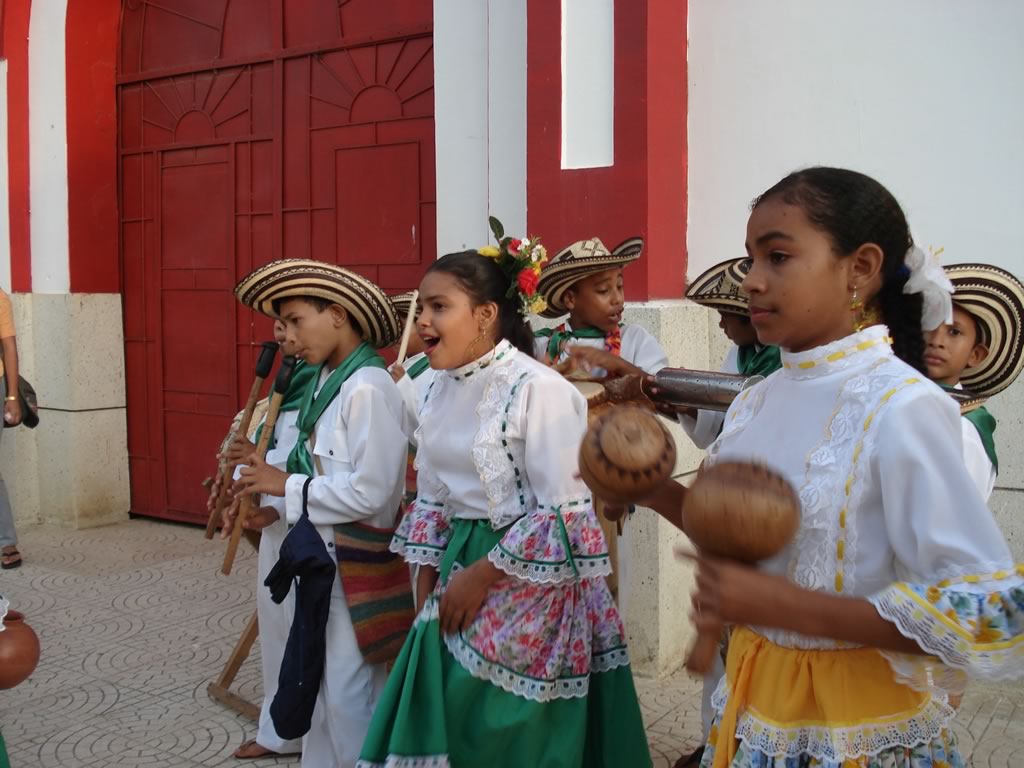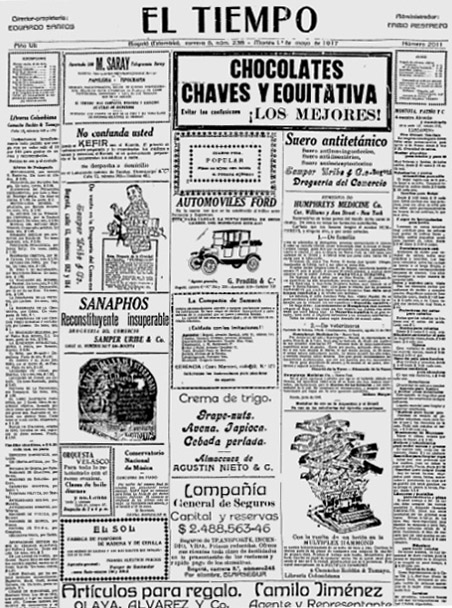|
La Piragua
"La Piragua" (translation "the canoe") is a song written by the Colombian songwriter, José Barros, in the cumbia genre. The song has been listed as one of the best Colombian songs of all time by multiple media sources: * In its list of the ten most iconic Colombian songs, '' El Nuevo Siglo'' rated ''La Piragua'' at number eight. * In its list of the fifty best Colombian songs of all time, '' El Tiempo'', Colombia's most widely circulated newspaper, ranked the versions of the song by Los Black Stars and Gabriel "Rumba" Romero at number three. * Viva Music Colombia rated the song number seven on its list of the one hundred most important Colombian songs of all time. The song has been recorded by multiple artists, including Celso Piña, Los Black Stars, Los Corraleros de Majagual, Gabriel Romero, Trio Los Inseparables, Los Hermanos Martelo, Luisin Landaez, Dolores Vargas, Paco Navarrete, Anibal Lopez, Los Flippers, Catalina Carrasco, Lito Barrientos, La Swingbaly, Orquesta La ... [...More Info...] [...Related Items...] OR: [Wikipedia] [Google] [Baidu] |
Cumbia (Colombia)
Cumbia is a folkloric genre and dance from Colombia.Cheville, Lila, Festivals and Dances of Panama, Panamá: Litho Impresora Panamá, 1977. 187 p.; 22 cm. Page 128-133 Since the 1940s, commercial or modern Colombian cumbia expanded to the rest of Latin America, after which it became popular throughout the continent, including in Argentina, Bolivia, Chile, the Dominican Republic, Ecuador, Mexico, Peru, El Salvador, United States, Uruguay, and Venezuela. Etymology Most folklorists and musicologists, such as Narciso Garay, Delia Zapata Olivella, and Guillermo Abadia Morales, assume that cumbia is derived from the Bantu root ''kumbe'' "to dance", or any other of the many Bantu words with "comb" or "kumb". Cf. samba, macumba. Another possibility is the Tupi-Guarani word ''cumbi'' "murmuring, noise". Cumbia was also a kind of fine woolen garment produced for the Inca. In 2006, Colombian musician and musicologist Guillermo Carbo Ronderos said that the etymology of the word ''cu ... [...More Info...] [...Related Items...] OR: [Wikipedia] [Google] [Baidu] |
José Barros
José Benito Barros or simply José Barros (March 21, 1915 in El Banco, Magdalena – May 12, 2007 in Santa Marta, Magdalena) was a prominent Colombian musician, and composer of more than 800 songs in genres including cumbia, porro, merengue, currulao, paseo, bolero and tango. Biography Barros was the son of Portuguese Joao María Barros Traveceido and Eustasia Palomino, and the youngest of five siblings. He didn't know his parents, who died in his infancy. He was raised by his aunt Clara Palomino. He lived with only one of his siblings. To help support his household, Barros sang in his hometown central square and at homes of wealthy people. He learned to play a variety of instruments, especially the guitar. When he was 17, h ... [...More Info...] [...Related Items...] OR: [Wikipedia] [Google] [Baidu] |
El Nuevo Siglo
''El Nuevo Siglo'' ( en, The New Century) is a regional daily newspaper based in Bogotá, Colombia. History and profile It was founded in 1925 with the name ''El Siglo'' by Laureano Gómez Castro and José de la Vega, but its staunch opposition to the military rule of General Gustavo Rojas Pinilla led it to be closed by the Government in 1953, and only reopened at the end of the dictatorship in 1957. The newspaper had a drastic change of presentation in 1990, when it went from a broadsheet A broadsheet is the largest newspaper format and is characterized by long Vertical and horizontal, vertical pages, typically of . Other common newspaper formats include the smaller Berliner (format), Berliner and Tabloid (newspaper format), ta ... format to tabloid, and changed its name to the current one. References Publications established in 1925 Newspapers published in Colombia Spanish-language newspapers Mass media in Bogotá 1925 establishments in Colombia {{colombia- ... [...More Info...] [...Related Items...] OR: [Wikipedia] [Google] [Baidu] |
El Tiempo (Colombia)
''El Tiempo'' ( en, "Time" or "The Times") is a nationally distributed broadsheet daily newspaper in Colombia launched on January 30th, 1911. , ''El Tiempo'' had the highest circulation in Colombia with an average daily weekday of 1,137,483 readers, rising to 1,921,571 readers for the Sunday edition. From 1913 to 2007, ''El Tiempos main shareholders were members of the Santos Calderón family. Several also participated in Colombian politics: Eduardo Santos Montejo was President of Colombia from 1938 to 1942. Francisco Santos Calderón served as Vice-President (2002–2010). And Juan Manuel Santos as Defense Minister (2006–2009) during Álvaro Uribe's administration; Juan Manuel was elected president of Colombia in 2010 and served in that position until 2018. In 2007, Spanish Grupo Planeta acquired 55% of the ''Casa Editorial El Tiempo'' media group, including the newspaper and its associated TV channel Citytv Bogotá. In 2012, businessman Luis Carlos Sarmiento Angulo bought th ... [...More Info...] [...Related Items...] OR: [Wikipedia] [Google] [Baidu] |
Los Black Stars
Los Black Stars was a band from Medellin, Colombia. Their biggest hits were "La Piragua" and "Violencia" both by composer José Barros. These songs are featured on the compilation ''Las Cien Canciones Mas Bellas De Colombia''. References Colombian cumbia musical groups {{Colombia-stub ... [...More Info...] [...Related Items...] OR: [Wikipedia] [Google] [Baidu] |
Celso Piña
Celso Piña Arvizu (April 6, 1953 – August 21, 2019) was a Mexican singer, composer and accordionist, mainly in the genre of cumbia, being one of the most important musicians in the style of "cumbia rebajada". Piña was a pioneer in the mixture and fusion of tropical sounds with many of his works having elements of cumbia, regional mexicano, cumbia sonidera, ska, reggae, rap/hip-hop, R&B, etc. Piña is also known as El Rebelde del acordeón or the Cacique de la Campana. Early life Celso Piña Arvizu was born on April 6, 1953, in Monterrey, Nuevo León, Mexico to Tita Arvizu and Isaac Piña. He was the oldest of 9 siblings. The name of Celso was chosen by his grandfather. Throughout his childhood and teenage years, he worked different jobs like working in a tortilla bakery, painter, helper in mechanic shops, carpet installer, among others. Meanwhile he listened to groups like The Beatles, The Rolling Stones and musica norteña like that of Los Alegres de Teran and Antonio ... [...More Info...] [...Related Items...] OR: [Wikipedia] [Google] [Baidu] |
Los Corraleros De Majagual
Los Corraleros de Majagual is a Colombian music group from the Caribbean coast. The group, which has recorded songs in the cumbia, porro, vallenato, and other Latin genres, has received over 30 gold records. The group began in 1961 when Calixto Ochoa and Alfredo Gutiérrez met with Antonio Fuentes Estrada, owner of the Discos Fuentes record label. The group proposed a project of folk music in a rural context based on the accordion and the guacharaca. Fuentes named the group Los Corraleros de Majagual. Over the years, the size of the group expanded, and "many of Colombia's biggest cumbia stars earned their stripes" playing with the Corraleros. In its larger configurations, the band "featured plenty of brass and percussion and generous helpings of high-octane squeeze box." First hits The first hits of this group were Ana Felicia, Culebra Cascabel, El Tamarindo, Festival en Guararé, Guepajé, Hace un Mes, La Adivinanza, La Burrita, La India Motilona, La Manzana, La Palma de Coco, ... [...More Info...] [...Related Items...] OR: [Wikipedia] [Google] [Baidu] |
Julieta Venegas
Julieta Venegas Percevault (; born November 24, 1970) is an American-born Mexican singer, songwriter, instrumentalist and producer who sings pop-rock-indie in Spanish. She went on to join several bands including Mexican ska band Tijuana No!. Venegas plays 17 instruments including acoustic guitar, accordion, and keyboard. In 1997, she released her debut album '' Aquí'' to favorable reviews in Mexico by the rock audience. Her next production '' Bueninvento '' (2000) also produced by Gustavo Santaolalla, was praised by international critics and considered the third best album in the history of Spanish Rock by Rolling Stone. In later years, she positioned herself as one of the most prominent songwriters in Latin pop by achieving fame in 2003 in Latin America and Spain with the album '' Sí'' and singles "Andar Conmigo" and " Algo está cambiando" which were positioned at the top of Latin ''Billboard''. In 2006, she released her most successful album ''Limón y Sal'' which is her b ... [...More Info...] [...Related Items...] OR: [Wikipedia] [Google] [Baidu] |



